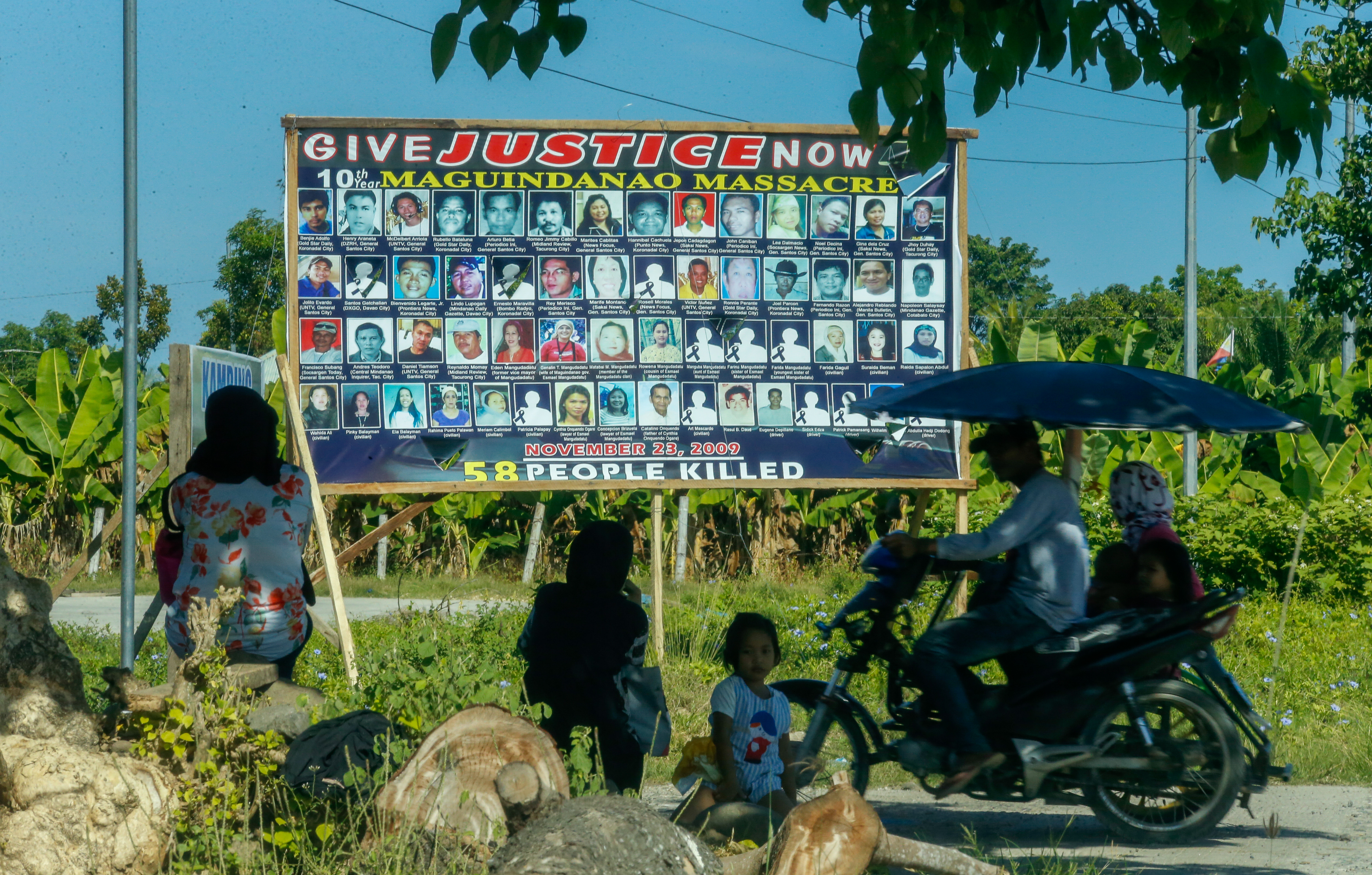CHR: Maguindanao a case for free press

JUSTICE IS COMING A billboard with pictures of the 58 victims of the Nov. 23, 2009, Maguindanao massacre stands on a side of the road to Barangay Salma Ampatuan in Maguindanao province, where they were stopped by gunmen that included members of the Ampatuan political clan, hauled up a rise above the road, and mowed down. —JEOFFREY MAITEM
MANILA, Philippines — As the decade-long trial of the Maguindanao massacre winds up on Thursday, the Commission on Human Rights (CHR) expressed hopes that people would be more aware of the role of a free press in the country amid continued attacks against them.
“There really is so much at stake here,” said CHR spokesperson Jacqueline de Guia. “The fact that (the trial) … dragged on for 10 years [has] really impacted our human rights situation. It contributed to the climate of impunity.”
Hopefully, she added, the verdict today would bring justice to the families of the 58 men and women, mostly journalists and media practitioners, who were brutally killed in Ampatuan town in Maguindanao province on Nov. 23, 2009.
Charged with 58 counts of multiple murder were 197 suspects, 15 of whom are members of the powerful Ampatuan clan.
“It’s worrying that 10 years since the Maguindanao massacre, heightened attacks against the media continue,” De Guia said. “That is something that we decry in a democracy.”
Article continues after this advertisementAmong most dangerous
The Philippines remains among the most dangerous countries in the world for journalists, who face not only death and threats to safety, but also harassment in the form of libel charges, cyberattacks and censorship, while equally battling poor wages and working conditions. At least 15 journalists have been killed under the Duterte administration, according to the Freedom for Media, Freedom for All Network.
Article continues after this advertisementA total of 49 journalists were killed around the world in 2019 which, according to the nonprofit group Reporters Without Borders marked the lowest death toll since 2003.In its yearly report released on Monday, the Paris-based watchdog said this “historically low” figure resulted from a dip in the number of journalists killed in war zones, particularly in Syria, Yemen and Afghanistan.
The group’s records showed some 80 journalists are killed every year in the past two decades.
Despite this unprecedented fall, the number of journalists slain in countries at peace remains to be high as in previous years. More journalists are now being killed in countries that are not at war, compared to those in the midst of conflict, the report said.
Christophe Deloire, the group’s secretary-general, said the numbers showed that the frontier between countries at war and at peace is “in the process of disappearing” for journalists.
While the group welcomes the decrease in the number of journalists killed in war zones, “more and more journalists are being deliberately murdered in connection with their work in democratic countries,” Deloire said.
In a statement, he said this poses a real challenge for democracies where journalists live and work.